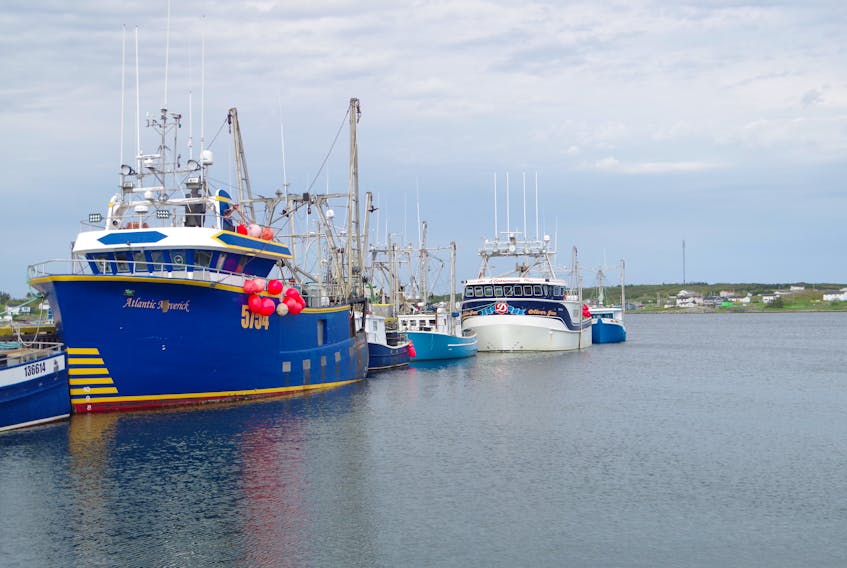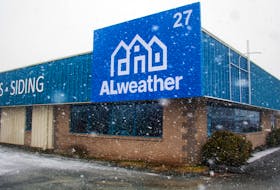NOTE: This story has been updated with new information
Fish harvesters who are already collecting Employment Insurance benefits will still be eligible to receive a lump-sum payment from the Fish Harvesters Aid Package announced last week by the Department of Fisheries and Oceans (DFO).
A spokesperson with DFO confirmed that detail for SaltWire, saying, "The Benefit is designed to address self-employed fishing income loss in 2020 and is not impacted by receipt of Employment Insurance."
The spokesperson added, "Under the terms of the Fish Harvester Benefit, the recipient entitlement threshold is a minimum of $2,500 of self-employed fishing income (aligned with the minimum qualification threshold for EI Fishing Benefits)."
The union that represents fish harvesters in Newfoundland and Labrador welcomed the announcement of the Fish Harvesters Benefit Fund on Wednesday, Aug 5, but at that time of the announcement, some details of the program were not clear.
Fish, Food and Allied Workers (FFAW) president Keith Sullivan said there are still many questions about the details of the program, including the question about whether fish harvesters would be able to collect the benefit if they were already collecting, or qualified for EI benefits.
The program is being managed by the Department of Fisheries and Oceans (DFO), and crew members and enterprise owners will have to apply directly to that department for the benefit or grant.
A news release from Fisheries Minister Bernadette Jordan offered minimal details, saying only that the program would open for applications Aug. 24 to Sept. 21, and providing a link to the Fisheries and Oceans Canada website where harvesters could get more details.
According to information on the DFO website, the fish harvester benefit is for commercial fish harvesters (including crew members who are considered share persons on a boat).
“The (fish harvester) benefit covers up to 75 percent of income losses beyond a 25 percent threshold for the 2020 tax year when compared to 2018 or 2019. The maximum benefit is $10,164,” states the DFO website.
Jordan was not available for an interview, but a spokesperson for the department told SaltWire Network the program for fish harvesters was mirrored on the wage subsidy program that was established earlier this year to help Canadian businesses retain employees during the pandemic.
That wage subsidy program provided the subsidy directly to the business owners, to pay their workers’ wages.
“We recognize that fishing has a unique structure and share persons are sort of like co-owners of the boat,” the DFO spokesperson said.
"It’s like everything, the details are going to be important for each individual because everybody has got a slightly different situation.”
DFO decided that instead of making the payment to the enterprise owner to pay the crew, the program would enable crew members to apply directly for the benefit.
“To be able to qualify the fish harvester has to demonstrate 25 percent loss of income this season compared to either last season or the year before,” said the department spokesperson.
Harvesters who qualify for the benefit won’t get a lump sum.
The department spokesperson explained, “You’ll get 60 percent of the benefit within five business days (of approval of application) and then the other 40 percent after you file your (2020) taxes, because we need to have confirmation of what the losses were for the 2020 season.”
On the evening of the announcement, it was clear that many fish harvesters had questions about the program.
When the FFAW posted the news release on its Facebook page, one of the many questions asked was whether or not a fish harvester would be eligible for the Fish Harvesters Benefit if they had already filed for Employment Insurance for a summer claim.
It's not clear whether they will get the benefit in addition to their current EI claim.
Sullivan said that’s one of the questions the FFAW hopes to get more clarity on in the coming days.
Meanwhile, the Fish Harvester Grant is applicable only to the owners of fishing enterprises.
That program will provide them with up to $10,000, depending on their historic fishing enterprise revenue for the past two years.
“The way that works is, basically, you get 10 percent of your salary, taking the highest income from either 2018 or 2019," said the DFO spokesperson.
“So, if you made $65,000 in 2018 and $75,000 in 2019, then you would take the higher salary and get $7,500 in a grant. But the maximum is $10,000. So if you made over $100,000, you’re still only going to get just $10,000."
The DFO spokesperson said enterprise owners who qualify for the grant will get the full amount this year, within five business days of the approval of their application.
Sullivan said the union would like to have more detailed definitions regarding “non-deferred” business costs mentioned in the grant program.
“We will continue to ask these questions to make sure we get more clarification for the different scenarios. Because it’s like everything, the details are going to be important for each individual because everybody has got a slightly different situation.”
No answers for plant workers
While fish harvesters finally have some sense of a program to cover losses created by the pandemic, fish plant workers who have lost work due to the pandemic are still wondering what the future holds for them.
The FFAW represents about 3,000 plant workers in Newfoundland and Labrador, and there are about another 3,000 non-union plant workers in the province.
There are thousands more plant workers across Atlantic Canada, some of them struggling to get hours of work in a season that saw lobster sales plummet and the shrimp fishery delayed.
The crab fishing season provided steady work in some plants this year, and some workers will qualify for EI, but Sullivan said there are still “hundreds and hundreds” of workers in Newfoundland and Labrador who will not have enough hours to qualify for EI.
He said the union, and others, continue to push for a program for plant workers. Two of the main solutions they have suggested are an extension of last year’s EI benefits for plant workers for 2020 and into 2021, and a change to the divisor rule to ensure workers can qualify for EI benefits with fewer hours and weeks of work.
St. John’s East MP Jack Harris told SaltWire Network on Thursday that the federal NDP continues to push for solutions for seasonal workers who have been affected by the pandemic.
Harris pointed out that tourism industry employees and substitute teachers are also uncertain about EI benefits for the months ahead due to reduced work or no work at all over the past few months.
But there’s no sign of a solution for those workers any time soon.
Harris suggested the answer may depend on changing the legislation around employment insurance.
That will require a motion to Parliament and a vote on amendments to the EI Act.
Parliament is sitting twice in August, but the agenda for those sessions has not yet been determined.
Seasonal workers who have not been able to work due to the pandemic are still eligible for the Canada Emergency Response Benefit (CERB), which has been extended to October.
Twitter: @BarbDeanSimmons









